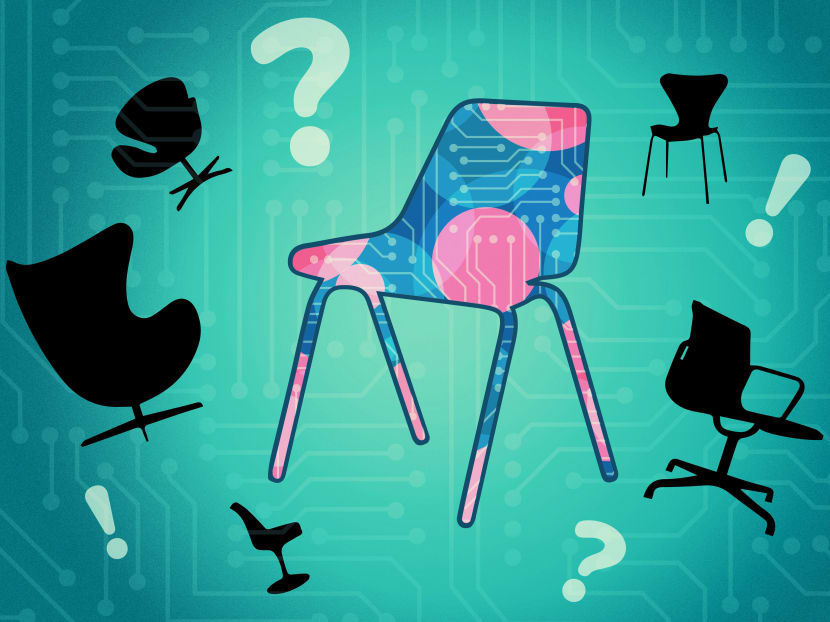My chair is not optimised by AI, are you sure yours is?
Recently, I was at a shopping mall and came across a kiosk selling high-end chairs. The promotional banner claimed elevated comfort using artificial intelligence (AI). It was intriguing and bemusing at the same time. Was this overhyped marketing or is AI technology becoming ubiquitous?
Recently, I was at a shopping mall and came across a kiosk selling high-end chairs. The promotional banner claimed elevated comfort using artificial intelligence (AI). It was intriguing and bemusing at the same time. Was this overhyped marketing or is AI technology becoming ubiquitous?
Scroll through any media website, most blogs, and especially LinkedIn and you would not be faulted for feeling overwhelmed by all sorts of technologies claiming to be using AI to change and “disrupt” business, society and the world.
But, first things first, what is AI? An authoritative definition on exactly what AI is can easily get one bogged down in technological nuances and debate. A more simple and basic definition is a good starting point and in truth, boils it down to its bare essence.
This characterisation by the Infocomm Media Development Authority is useful: “Artificial Intelligence refers to the study and use of intelligent machines to mimic human action and thought”.
Simple, yes, but according to most AI experts, current AI technology cannot mimic most human actions and cognitive capabilities.
Yes, Siri, Alexa and (okay Cortana for the Microsoft fans) all use elements of AI in its broadest sense. Many other technological solutions claim to mimic specific functions or a set of human functions, but not all.
Progress in machine learning and big data analytics is allowing machines to analyse enormous amounts of data and find patterns that humans cannot see. But full human cognition is far from a reality, and unlikely to be unleashed in today’s applications as most marketers claim.
Coming back to my AI enabled chair, I am left with three questions. First, is this overhyped marketing? Second, do I really need an AI optimised chair and finally, what does the future look like with AI-enabled chairs, kettles and what not.
In terms of the chair, I remain sceptical about the claim that it runs on “AI”, granted it may be using some form of advanced analytics and innovation. But these days, anything and everything with data analytics and a bit of advanced computing is being sold as AI.
It’s wise to be sceptical. Many of the AI and related technologies remain a work in progress and according to some experts, decades away from really delivering on their claims.
Outright fraud is also a concern. A recent Wall Street Journal report pointed to a company that claimed its AI was developing mobile apps, when its fact it was human developers who were getting the work done.
Scratch beneath the surface of some of these AI claims and it is perhaps advanced algorithms driving the AI. It gets tricky parsing out the difference between AI and advanced algorithms.
Advanced algorithms can compute and solve complex problems, but within a defined set of rules and outcomes. AI purists would argue that AI outputs are not pre-defined. This debate is sure to rage on and so will the claims of use of AI be made.
I am no Luddite, I do firmly believe that we are upon a technological revolution of sorts due to advances in computing power, cloud computing, 5G as well as quantum computing. These changes are upon us, whether we like it or not.
There is a certain path dependency to how we envision a future and build towards it. However, for those of us who lived through the hype of the 2000s and the dot com mania, there are similar echos to today’s AI “mania”.
Pet.com and grocery.com of 2000 were ahead of their times.
Similarly, some AI technologies will be ahead of their times, especially for mass adoption. However, while online grocery delivery took about 15 years to mature (from 2000), the adoption of AI will be faster.
Now the second question, do I really need or want an AI-powered chair? No. My trusted old Ikea chair does just fine for supporting my posterior.
But I also am aware it’s a free world and consumers want choices. As such, there will be some demand for AI-driven chairs, blenders and toast makers. I, for one, plan to eat my toast the old-fashioned way, unevenly toasted and burned, with some high-fat cream cheese and smoked salmon that are not optimised by AI.
On a more serious note though, AI and advances in technology are of immense benefit to humanity in many areas, from scientific breakthroughs that unlock life-saving drugs and detecting disease with accuracy to fraud detection. The list is endless.
Many companies are claiming savings, accuracy, and efficiency gains of AI.
Not a day goes by without a new report proclaiming the future of work and life because of the technological disruption upon us. It is mostly painted rosy. Identifying biases, financial incentives of the many authors and report writers is a difficult task.
But it is one that we must embark on before widespread adoption of AI.
One thing is certain, AI and associated technologies will change life. It will not be linear, there will be disruptions, both intended and unintended. I do still like the simplicity of a plain old chair that just lets me rest, no optimisation required.
ABOUT THE AUTHOR:
Joy Rankothge is a specialist risk advisor and writes about the interplay between politics-macroeconomics-society and technology. He is a Principal at Country Acuity Advisors and a Strategic Partner at Limark Technologies.







